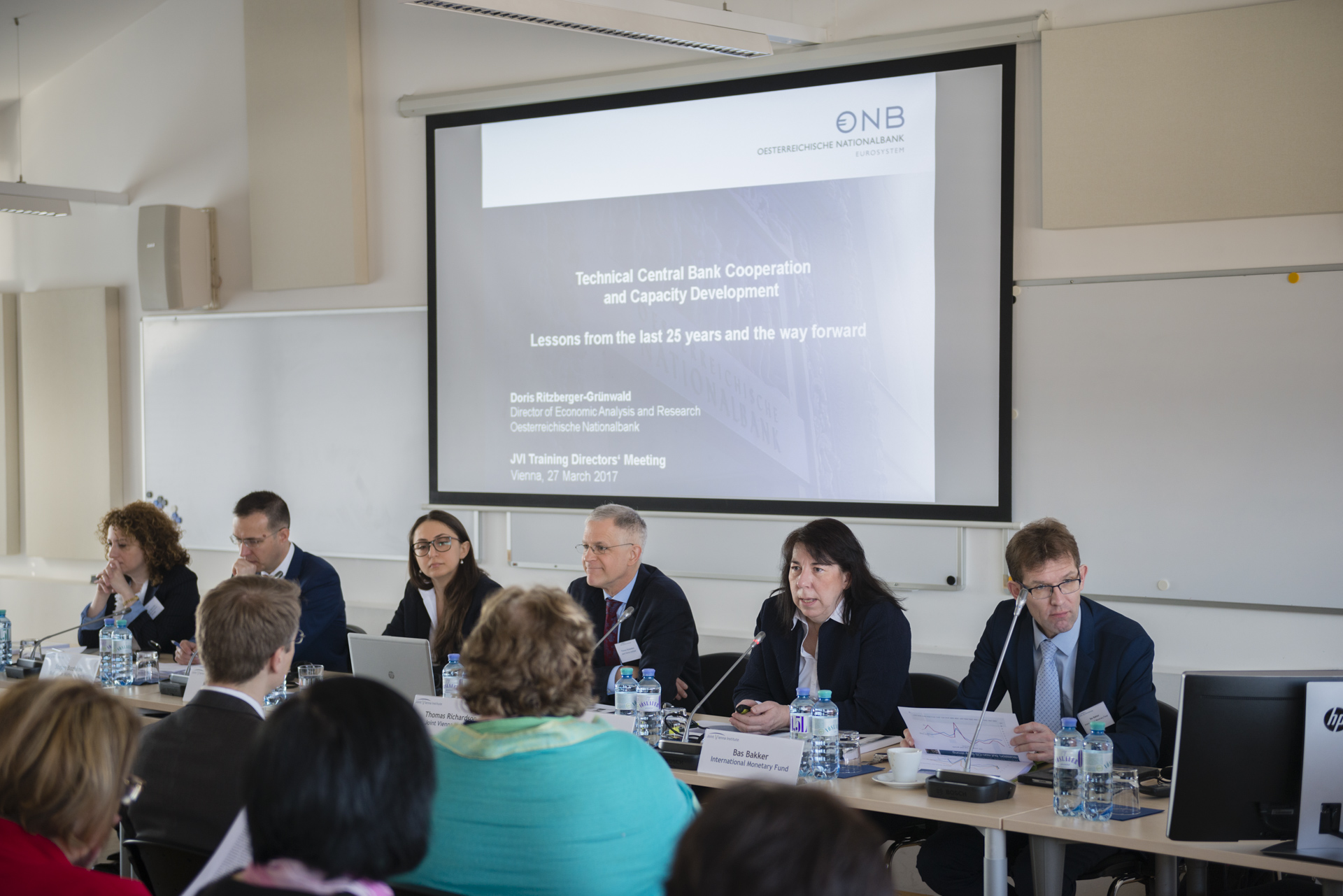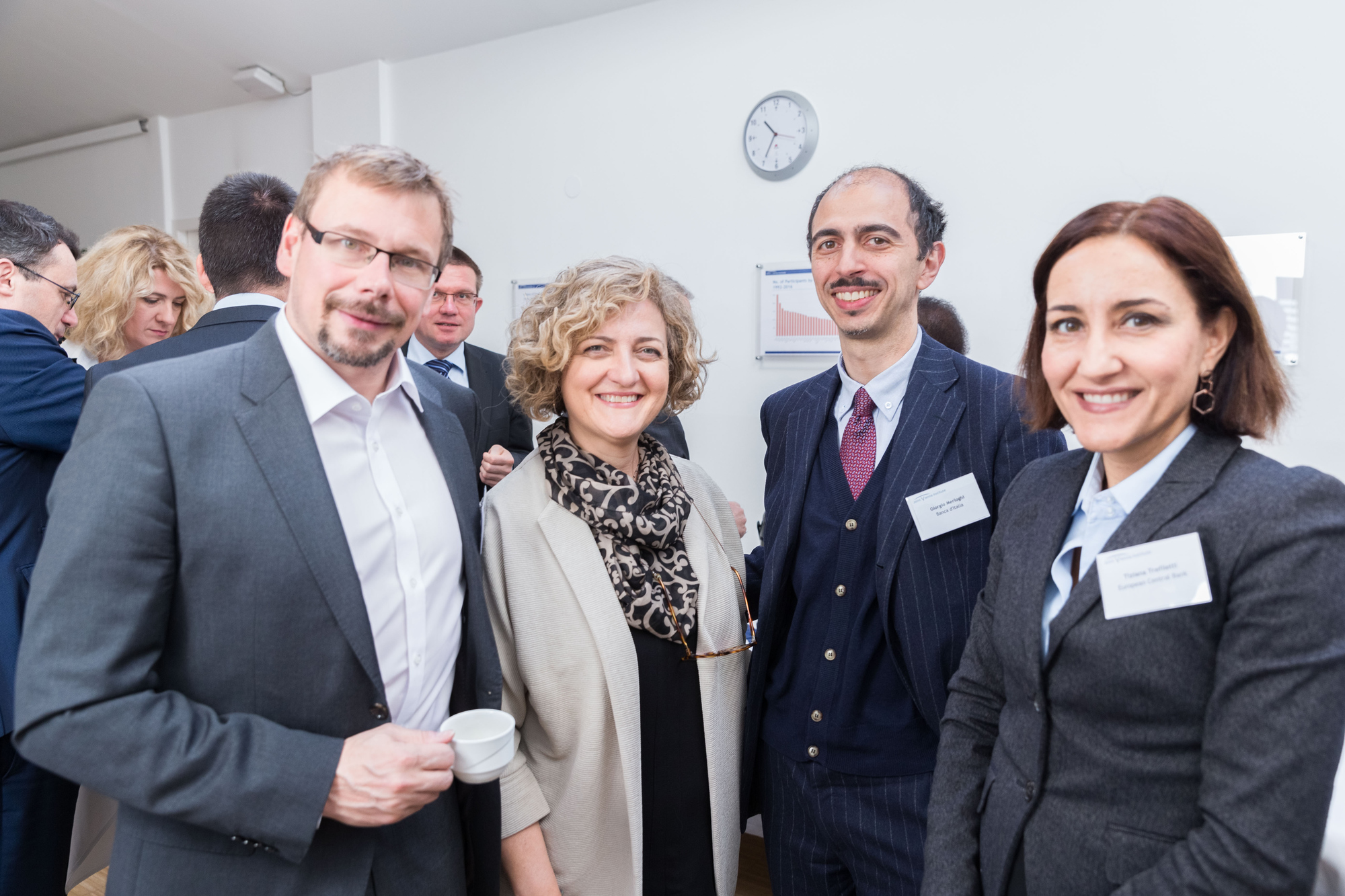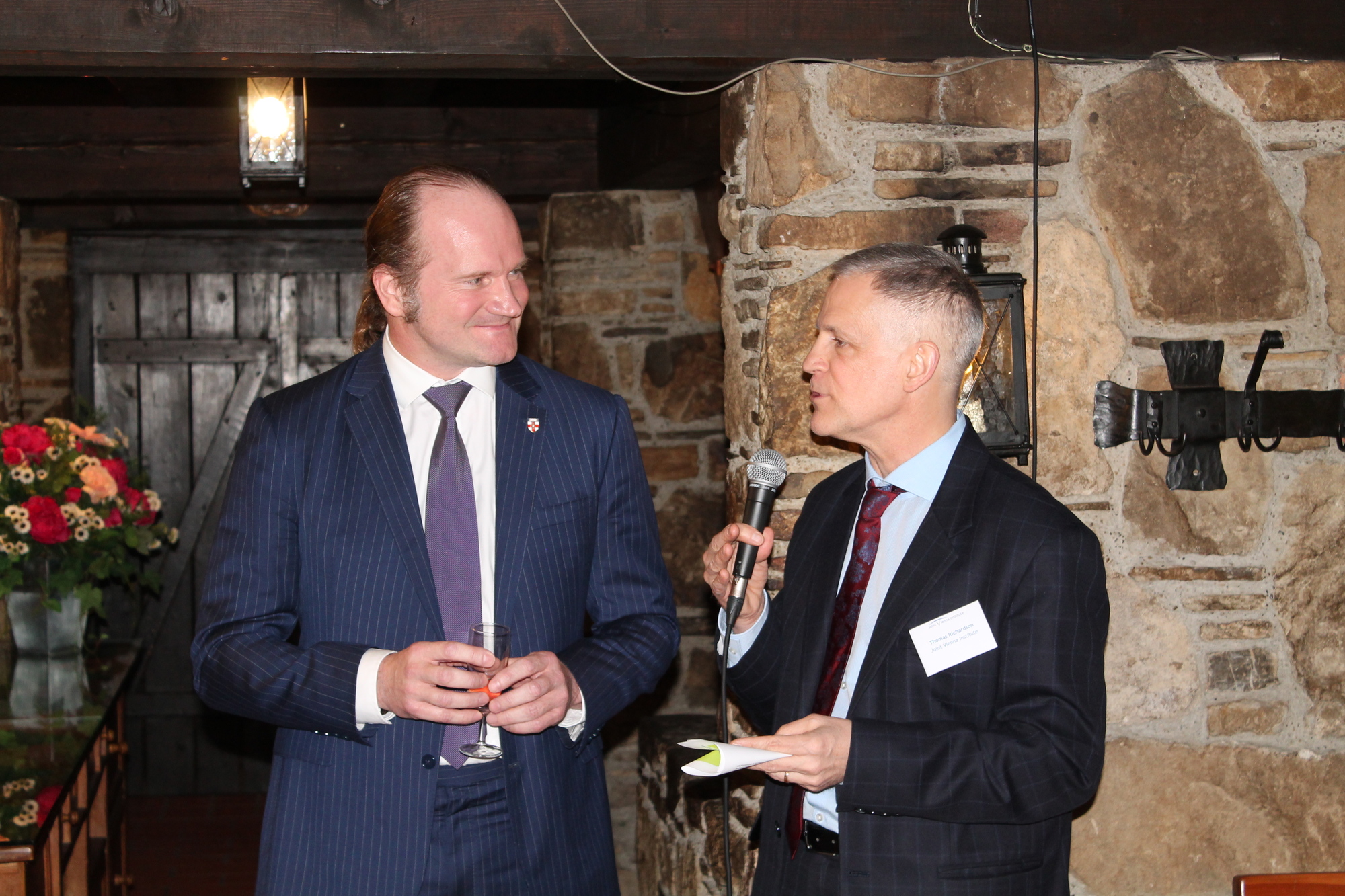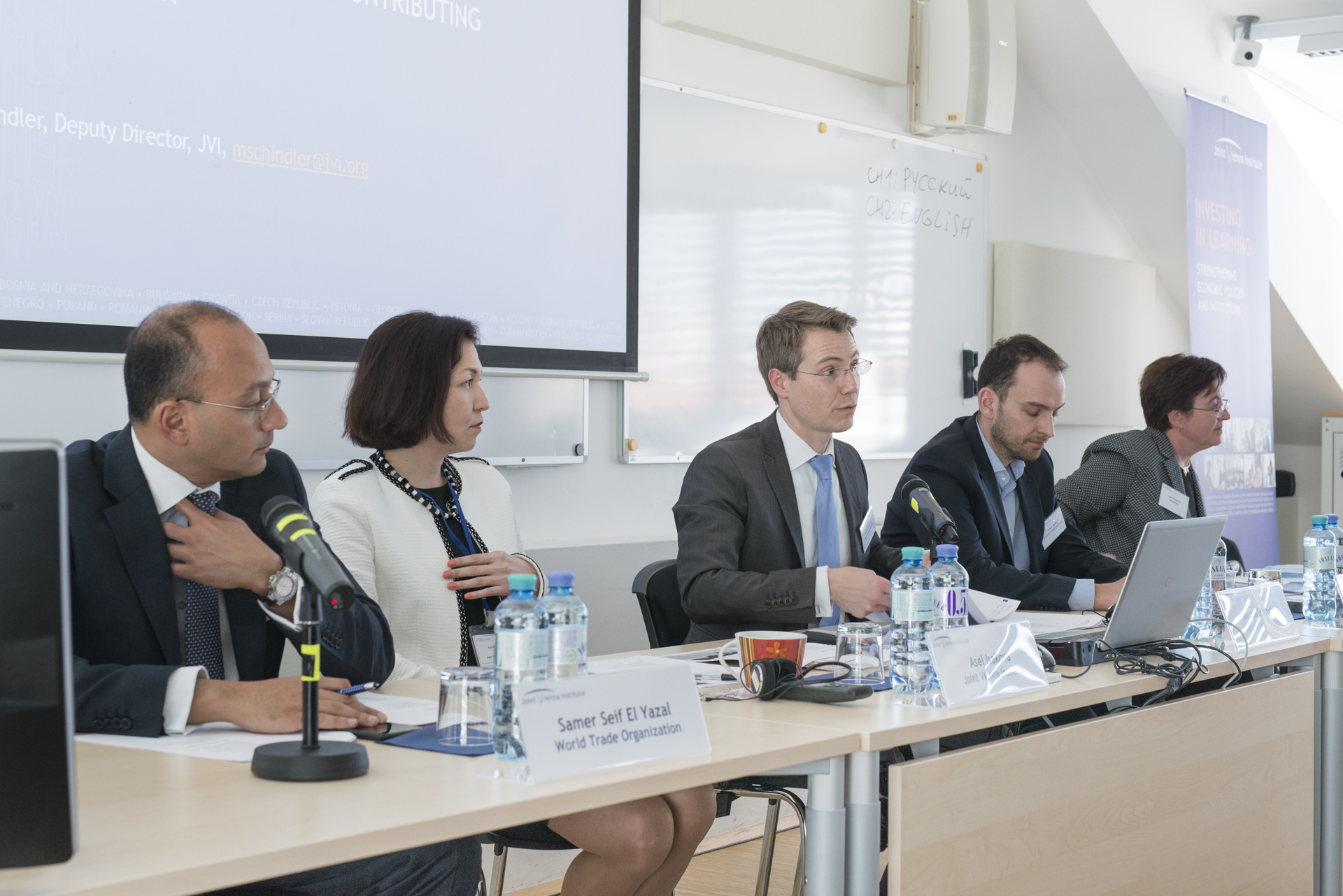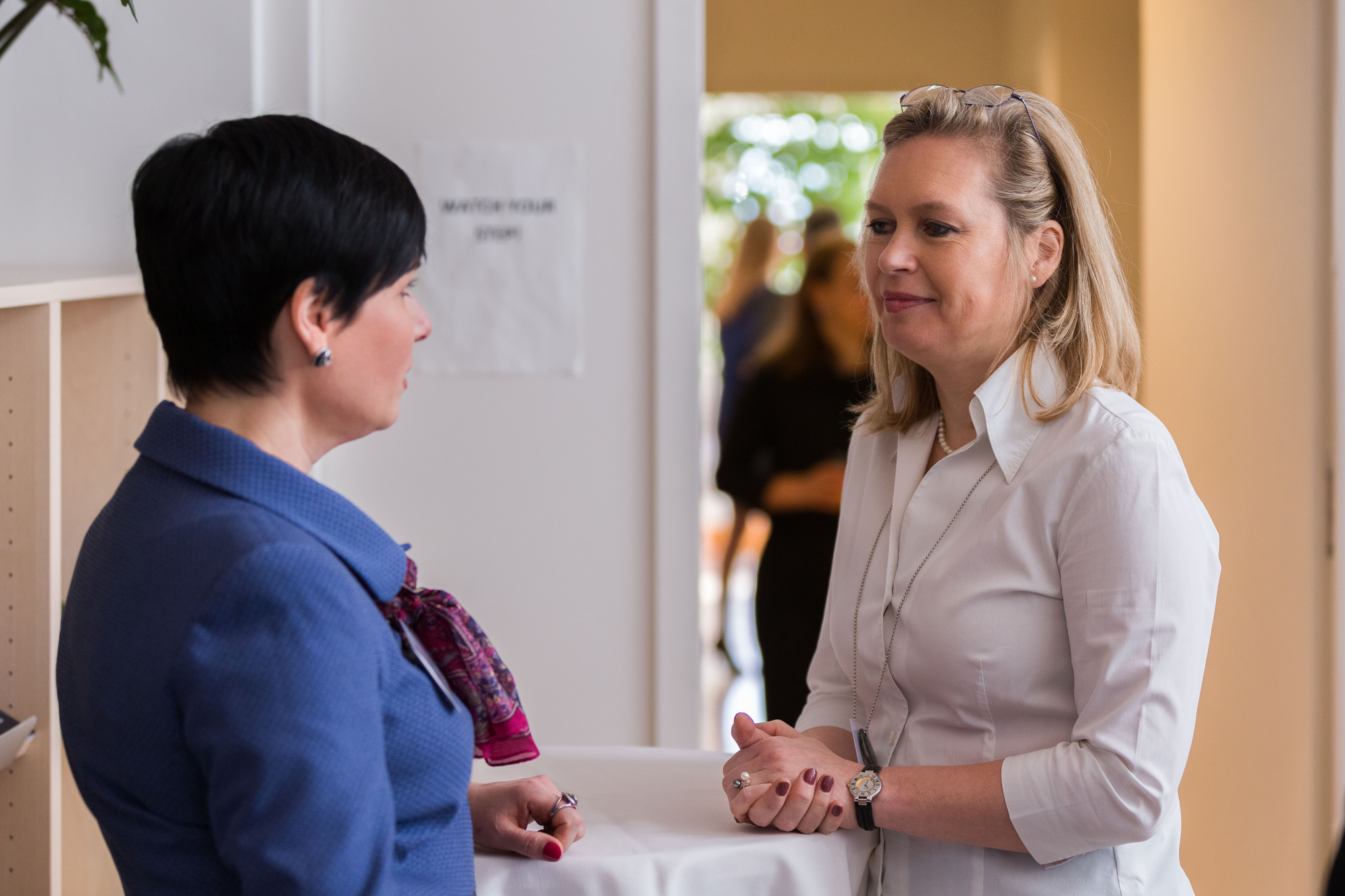All main stakeholders—the Austrian Authorities, the IMF and the JVI—emphasized their strong commitment to the region. Ms. Doris Ritzberger-Grünwald, OeNB, reviewed OeNB training and technical cooperation in the CESEE region over the last 25 years. JVI Director Thomas Richardson emphasized the achievements of the JVI since it was established, noting that more than 40,000 participants had attended JVI training. Mr. Bas Bakker, IMF, reviewed macroeconomic developments in the region over the years and the IMF’s capacity development strategy in the region.
The JVI’s capacity development work has had a significant impact in the region. Ms. Maria Arakelyan, JVI, summarized the results of the JVI alumni and training directors survey conducted in preparation for the meeting to solicit feedback about JVI courses. The results showed that respondents were generally very highly satisfied with the training, and that JVI courses compared favorably to training by other institutions. The discussion at the end of the presentation showed a desire for further expanding the range of training tools and channels to share information, such as peer-to-peer events, online learning, and using Facebook and other social media to communicate about training opportunities.
To remain in line with new training needs emerging among its member countries, the IMF—an important pillar of the JVI’s training curriculum—recently revamped its set of online and face-to-face courses. Ms. Hali Edison, IMF Institute for Capacity Development (ICD), reviewed the current status of IMF training. The session focused on the new curriculum that ICD has devised, organizing courses by both topic and the degree of technical complexity. Ms. Edison spoke about expanding the ICD online curriculum and the necessity of assessing training needs. Mr. Maksym Ivanyna of JVI, supplemented the presentation by describing courses offered by IMF technical departments: FAD, LEG, MCM and STA. Several training directors commented that more outreach to introduce JVI/IMF training programs would be very useful.
The Austrian Authorities and partner central banks emphasized the complementarity of courses provided by JVI sponsoring organizations and partners. This panel session discussed courses offered at the JVI by the OeNB, the BMF, and the wiiw. Ms. Romana Lehner, OeNB, and Ms. Elizabeth Vitztum, BMF, discussed areas that the Austrian authorities cover in their training programs. Messrs. Martin Schindler and Adam Gersl, both JVI, described the courses on Structural Reforms and Applied Economic Policy (AEP) as unique in bringing together JVI sponsoring institutions to share their knowledge and expertise with students from JVI target countries. Mr. Gersl summarized the cooperative courses the JVI has devised in collaboration with central banks in the region, including OeNB, Banque de France, Bank of England and Deutsche Bundesbank. The panel continued with representatives of the Deutsche Bundesbank, ECB, and Banque de France, who emphasized the role of capacity building and the importance of their cooperation with the JVI and noted areas where central banks can complement the JVI curriculum.
Finally, JVI Contributing Members also presented their training programs. The last session of the first day covered courses offered by Contributing Members of the JVI – EIB, EBRD, OECD, WB and WTO, as well as the European Commission as an observer. While each institution had its own mandate and specific role, all parties recognized the importance to their respective mandates of training and technical assistance. All JVI members have much to contribute to, among others, the Structural Reforms and AEP courses and the course on tools and policies for inclusive growth.
Overall feedback to the information availability and clarity of application procedures at the JVI was very positive. Training Directors pointed out that the application process works smoothly and the information about courses is received timely. In addition, Ms. Tolu Peters from IMF provided insights on how internal staff training needs are identified and managed at the IMF and suggested that internal training should play an integral part in employees’ learning.
The Training Directors Meeting concluded with a panel discussion from which several themes emerged. Training Directors praised the JVI for the quality of its training, citing the emphasis on core macroeconomics, the learning-supportive facilities, and the strong support of the Austrian authorities. For the future, they also discussed new modalities for training. Many stressed the increased demand for peer-to-peer initiatives. They also called for greater flexibility in course design, citing the need to acknowledge the diversity of country experiences; more specialized courses; and seminars and workshops with a regional focus. Panelists suggested a number of areas for new topics and for a broader coverage of specific areas in financial stability issues and monetary policy strategy and communication for central banks, governance finance and fiscal policy, structural policies, including policy implications of climate change. The meeting provided a unique opportunity for a discussion between organizations sponsoring training at the JVI and its recipients.
Asel Isakova, Economist, JVI




